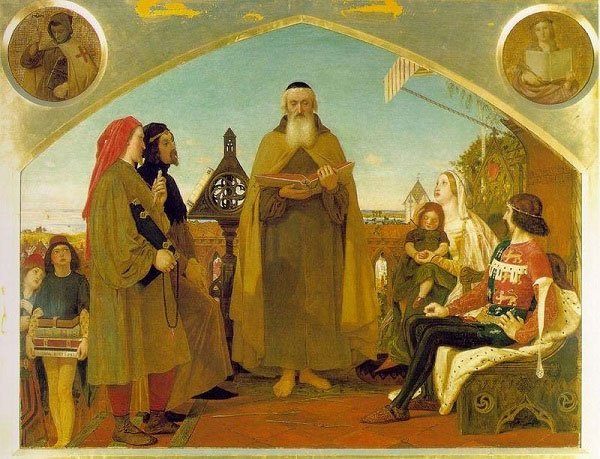
During the fourth century, Latin began to replace Greek as the common language and the Church needed an official translation. Pope Damasus assigned the job to Jerome, his theological advisor and perhaps the most learned man of the time. Jerome’s translation, called the Latin Vulgate (Vulgate means ‘common’, ie the common, normal Latin which the people spoke) became the Bible of the Middle Ages.
The Vulgate would outlast its purpose. As centuries passed, Latin became the language only of the highly educated. Common people could no longer understand the Church’s liturgy or Scripture reading. Instead of promoting new translations, clergy clung to the Vulgate because it forced people to rely on their interpretation.
In England, however, the situation was different.

John Wycliffe (1330-1384), often called the Morning Star of the Reformation, defied the clergy. Wycliffe and his following of academics from Oxford translated the Bible into English from the Vulgate by around 1384. Motivated by concerns regarding the lack of Biblical support around the supremacy of the papacy and the doctrine of the Last Supper, Wycliffe sought to translate the Bible into Middle English. Three languages were prevalent in England at the time. Latin was used by the clerics and academics, French was used by the aristocracy, and English was used by the peasants. Wycliffe’s aim was to bring the bible text to the common man; the farmer. It is possible that Wycliffe himself translated a large segment of the Bible, though historians cannot confirm this with certainty. Regardless, it is clear that this translation took place under his leadership.
Wycliffe translated the first English Bible and recruited traveling preachers, called Lollards, to spread God’s Word in English. Wycliffe’s Bibles, and later his bones, were burned, but he had sparked a Reformation. Wycliffe’s doctrinal views had been already called into question while he was still living, with many claiming that this University professor and priest was promoting anarchy or starting a revolution. John Wycliffe and his “Lollards” made their translation a reality through hand-written manuscripts.
For a short time the Wycliffe’s English translation caused unrest and was, of course, frowned upon by the establishment. This disapproval turned to anger, and by 1407 the Wycliffe translation was outlawed by the Archbishop of Canterbury. Wycliffe was declared a heretic on May 4, 1415 at the Council of Constance, and his writings were ordered to be burned. In 1428 his corpse was exhumed and burned. His ashes thrown into the nearby river.
In late 1407 Archbishop Arundel summoned a committee which crafted a constitution to address Wycliffe Bibles. The translation of any biblical text into a written form of English was hereafter banned. The reading of any English manuscript from the time of Wycliffe onwards was forbidden unless one had received permission to translate from a local diocese in advance. Anyone who violated this statute would be excommunicated, declared a heretic, and killed. In spite of this attempt to limit the circulation of the Wycliffe Bibles, the book become very popular as evident by the fact that over 250 manuscripts that have survived to this day.
